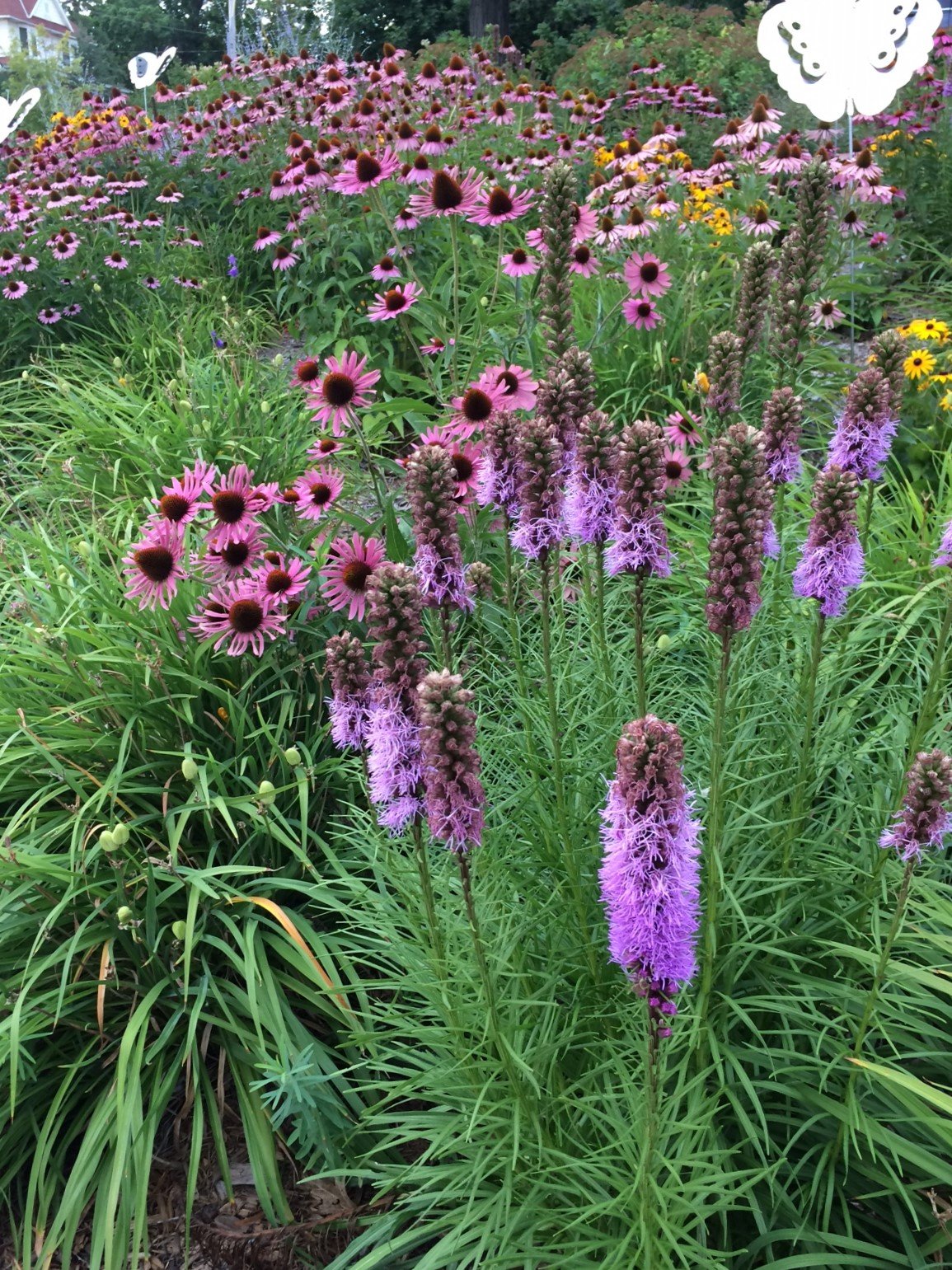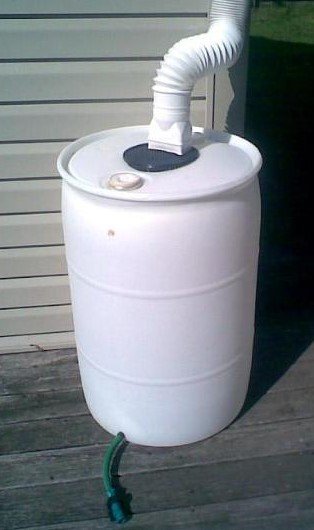Keep the Cannon (and Straight) River Clean with Rain Gardens and Rain Barrels
Stormwater (the rain that lands in cities and towns) has a big impact on the Cannon and Straight rivers. One way to keep your local river clean is to make sure the stormwater we send down storm drains is as clean as possible.
The more stormwater that flows across pavement and into the storm drain, the more fertilizer and sediment that rainwater can carry to the Cannon (and Straight) rivers. So, capturing some of that stormwater, and letting soak into the ground can reduce runoff pollution from your neighborhood. What’s more, as that stormwater soaks into the ground, the fertilizer and sediment pollution that it was carrying ends up fertilizing and adding soil to your lawn, all for free.
What Is a Rain Garden?
A rain garden is a planting of native, deep-rooted prairie flowers and grasses in a slight depression in your yard. You design the garden to capture stormwater from your downspouts and let it soak into the soil over the next 24 hours. Since rain gardens help clean and soak up stormwater, many cities have a rain garden rebate program that reimburses residents for part of the cost of installing a rain garden. Contact you city clerk to see if your city does this.
If you want to learn more about rain gardens, join Clean River Partners and City of Northfield staff to learn how to plant your own rain garden on Thursday, March 16, 2023, 6:00-9:00 pm at the Northfield Community Education Center.
To Register, go to www.CleanRiverPartners.org, or visit the Northfield Community Education website https://northfieldschools.org/communityeducation/ and search for "Plant a Rain Garden."
At this workshop, you’ll learn about the benefits of rain gardens and how to plan and install your own rain garden. You’ll learn where to put a rain garden, how to choose the right plants, and what city and county cost-share programs exist to help you pay for the rain garden.
Native Plant Rebate Program
Not sure you’re ready to plant a rain garden? Then consider planting native grasses and flowers in your yard. Once established, they take less work than lawn grass. They are deep-rooted, so they don’t need to be watered. And they’re beautiful. Planting native prairie flowers and grasses increases how permeable you lawn soil will be, allowing it to absorb more rainfall.
What Is a Rain Barrel?
A rain barrel is a barrel attached to the rain downspout that captures rainwater before it flows out into your lawn or pavement. Most rain barrels have a spigot at the bottom that you can use to fill a watering can to water flower gardens.
By capturing rainwater, less of that water flows across lawns or pavement to carry grass clippings, oil, sediment, or other pollutants into the Cannon and Straight rivers.
If we each do a little, we can all do a lot for clean water!
Article written by Kevin Strauss, Clean River Partners Community Engagement Coordinator


